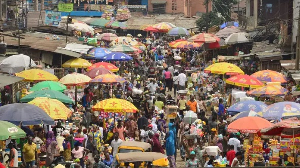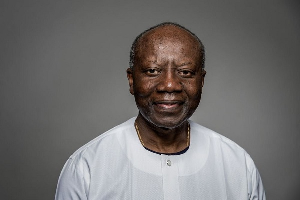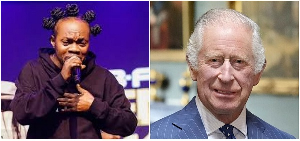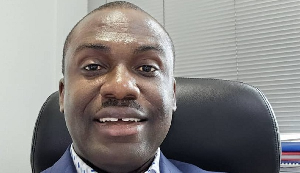The 9th China-Africa Summit was held in Beijing from 4 - 6 September, 2024. Organized under the theme: “Joining Hands to Advance Modernization and Build a High-Level China-Africa Community with a Shared Future”, the high-level conference, has once more, occasioned the dearth of strategic unique African voice or position for optimal socio-economic gains.
Individualism of the respective sovereignties as opposed to a unified collective continent-driven development agenda was exhibited.
In what may be termed another “Summiteering of Africa”, the Forum on China-Africa Cooperation (FOCAC), symbolizes a three-yearly multilateral development platform, alternating between China and Africa. Established in the year 2000, FOCAC has been held on five occasions in Beijing, and on four occasions in Africa: Addis Ababa 2003; Sharm El-Sheick 2009; Johannesburg 2015, and Dakar 2021.
This development-oriented platform (FOCAC), usually touts the advancement of the global “south-south” cooperation. However, like other summits (including the US-Africa; Japan-Africa; France-Africa; Russia-Africa), FOCAC will ceaselessly provoke queries of balance and equity in these uni-multilateral engagements.
Is the relationship a partnership or lopsided dominance? Evidently, the motivations for all these summits have largely been foreign interests’ pursuit of Africa’s natural resources, notwithstanding other considerations that may be lurking in the background.
Consequently, appeals for constructive engagements to ensure the proper management of these natural resources will clearly persist on the front burner. The clamour for African leaders to ensure optimal returns from these resources for present and unborn generations will remain germane and crucial.
Typical of Beijing, the 9th Summit flaunted China’s ‘global stage dominance’, and demonstrated Africa as a worthy partner, especially within the domains of the United Nations where Africa represent a major voting bloc.
Expectedly, the summit exhibited the usual Chinese pageantry followed by consultative processes to advance practical cooperation in diplomatic, political, economic, security, social and cultural development.
According to China’s Ministry of Foreign Affairs, “China shall never waver in its determination to pursue greater solidarity and cooperation with Africa”. The Ministry acknowledges that this particular summit is the “largest diplomatic event” in Beijing, in recent years, describing same as the “grand reunion of the China-Africa big family”.
These statements highlight how much premium China places on the relations with Africa. The potential benefits to China’s global diplomatic appeals are perceptibly enormous. However, can the same be said of our African leaders? How do they view this relationship, and all other summits/conferences they gleefully attend?
How will they ensure the optimal benefits for their populations? Suffice to note that China-Africa accounts for about a third of the world’s population. Quite a significant global market!
More than 300 representatives from the African Union and all 54 African states participated in the summit, except Eswatini who maintains diplomatic lines with Taiwan – a relation China strongly opposes. After the opening ceremony, highlights of the summit witnessed the adoption of the Beijing declaration on “building a shared future in the new era” as well as the “Beijing Action Plan for 2025 - 2027”.
Subsequently, President Xi Jinping, pledged a funding package of 360 billion Chinese Yuan – equivalent to (about US$ 51 billion), over the next three years. The funds target support for the development of Africa’s infrastructure, agriculture, security and manufacturing sectors.
The package targets one million job opportunities across Africa over the period. Also sealed, was the signing of 30 infrastructure and 30 clean energy projects while cooperation in nuclear technology and industrialization schemes were agreed upon.
Of the 360 billion Chinese Yuan, President Xi, announced that 210 billion (approx. US$ 30 billion) will provide credit lines for African countries over the three years whilst 70 billion (approx. US$ 10 billion) will support fresh investments by Chinese companies.
Trade: It’s important to state that China is Africa’s biggest trading partner. Indeed, the IMF reports that about 25% of Africa’s exports (largely raw materials) head to China whilst about 16% of Africa’s imports are from China.
The total trade volume between China and Africa as of end 2023 was worth US$ 282 billion. The three leading African countries trading volume with China include: South Africa US$ 35.9 billion; Angola US$ 27.3 billion and Nigeria US$ 24.1 billion. However, Africa only constitutes about 4.7% of China’s global trade volume.
Debt Diplomacy: President Xi’s announcement of a new credit line will indubitably ignite the repeated accusation against China, by the West, of ‘debt diplomacy’ – a situation where China allegedly lures African countries into unfavourable loan terms, resulting in debt unsustainability and China exerting political influence or dominance on the affected countries.
Suffice to note that China is Africa’s biggest creditor. Between 2006 - 2021, China had committed about US$ 191 billion to Africa by way of grants and loans for various infrastructure projects. By end 2022, Africa owed China US$ 80 billion, with Angola, Ethiopia, Kenya, Zambia and Nigeria taking half.
Since China’s launch of its Belt and Road Initiative in 2013, many African countries have seen huge investments in infrastructure projects (roads, railways, air/sea ports, just a few), resulting in considerable indebtedness by the beneficiary countries.
Sustainable debt management has become challenging to contemporary African countries. The phenomenon of ‘debt trap’ will, thus, remain topical. China’s new credit lines over the next three years will undeniably constrain the fiscal space in the medium to long term and exacerbate the debt situation for African countries. Ghana, like Zambia for example, is presently debt burdened.
Both countries have defaulted on debt obligations to China and have restructured to postpone interest payments and amortization. Kenya, also heavily indebted to China, has experienced recent disturbances on account of austerity measures to address its budget deficits.
Avoiding unsustainable debt levels is apt, and a genuine call to African leaders, who must not only live within their means, but encouraged to invest loans in productive self-financing projects.
Investments in areas with comparative advantage, supported by up-to-date technology, addressing joblessness and providing the basic necessities of life to the population will be crucial.
Negotiations: Whilst China’s development trajectory is remarkably worthy of emulation, and indeed credited for lifting 800 million people out of poverty over four decades, the need for Africa to negotiate from a strengthened position can’t be understated. African leaders have repeatedly negotiated with China (and others) on bilateral basis.
The weight of Africa’s collective existence has hardly been brought to bear on the negotiation table. As a result, incoherent positions, weakening of the collective bargaining capacity or advantage, sometimes lead to situations of competition for resources (investments) amongst African countries.
Further, the lack of transparency, absence of due diligence to guarantee projects and ensure public participation in these negotiations, disadvantage citizens. These occurrences have occasionally accounted for implementation failures and white elephant projects.
Africa’s negotiating strategies ought to be enhanced – modification is immensely needed. The weight of the collective regional body ought to bear on these summit negotiations. Beyond what the environment presents by way of natural resources, Africa has the market to attract considerable investments. Similarly, same diplomatic strategies ought to be extended to the other summits (US-Africa, EU-Africa, etc) as foreign interest will never shy away from Africa.
The African Union can serve as well as provide a coordinating platform and lead the process for negotiation on behalf of the continent. The African Union must develop and enhance the needed tools/protocols to carry it members along. Ensuring projects negotiated reflect AU’s Agenda 2063 will be critical to its forward match.
Opinions of Sunday, 8 September 2024
Columnist: Aminu Shittu















